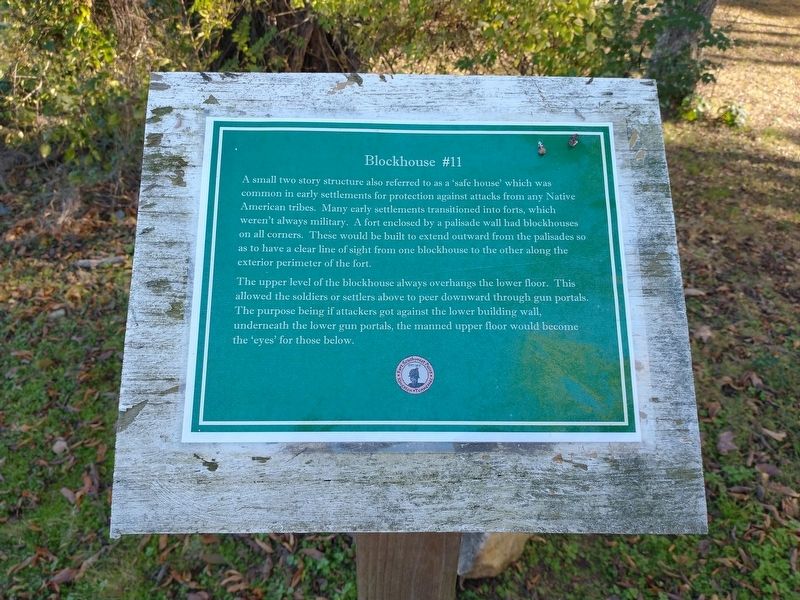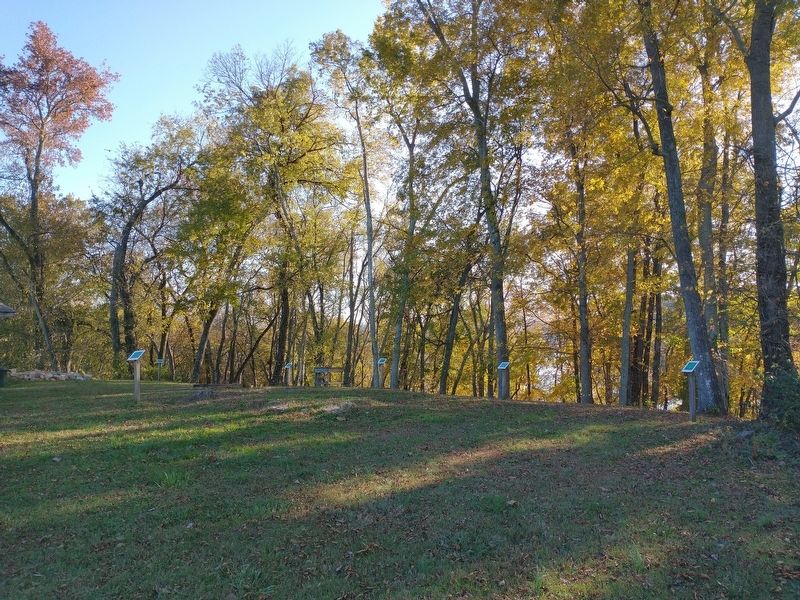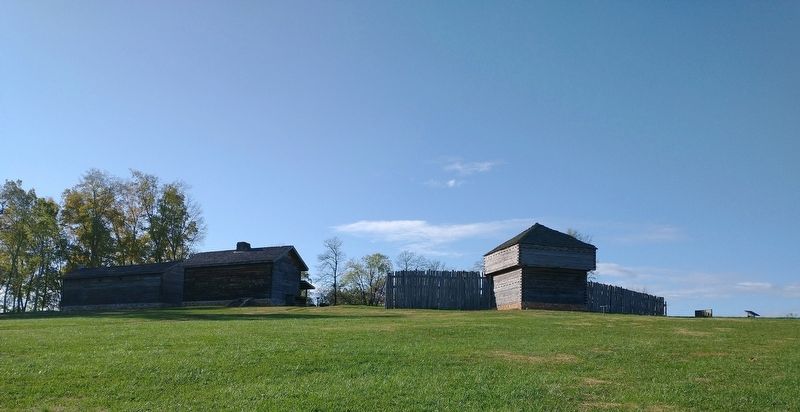Blockhouse #11
A small two story structure also referred to as a ‘safe house’ which was common in early settlements for protection against attacks from any Native American tribes. Many early settlements transitioned into forts, which weren’t always military. A fort enclosed by a palisade wall had blockhouses on all corners. These would be built to extend outward from the palisades so as to have a clear line of sight from one blockhouse to the other along the exterior perimeter of the fort.
The upper level of the blockhouse always overhangs the lower floor. This allowed the soldiers or settlers above to peer downward through gun portals. The purpose being if attacked got against the lower building wall underneath the lower gun portals, the manned upper floor would become the ‘eyes’ for those below.
Topics. This historical marker is listed in this topic list: Forts and Castles.
Location. 35° 51.632′ N, 84° 31.763′ W. Marker is in Kingston, Tennessee, in Roane County. Marker can be reached from South Kentucky Street north of James Ferry Road, on the left when traveling north. Marker is located within Fort Southwest Point. Touch for map. Marker is at or near this postal address: 1226 S Kentucky St, Kingston TN 37763, United States of America. Touch for directions.
Other nearby markers. At least 8 other markers are within walking distance of this marker. Southwest Stonewall (a few steps from this marker); Fort Privy 2
Credits. This page was last revised on January 12, 2021. It was originally submitted on January 10, 2021, by Tom Bosse of Jefferson City, Tennessee. This page has been viewed 116 times since then and 13 times this year. Photos: 1, 2, 3. submitted on January 10, 2021, by Tom Bosse of Jefferson City, Tennessee. • Devry Becker Jones was the editor who published this page.


